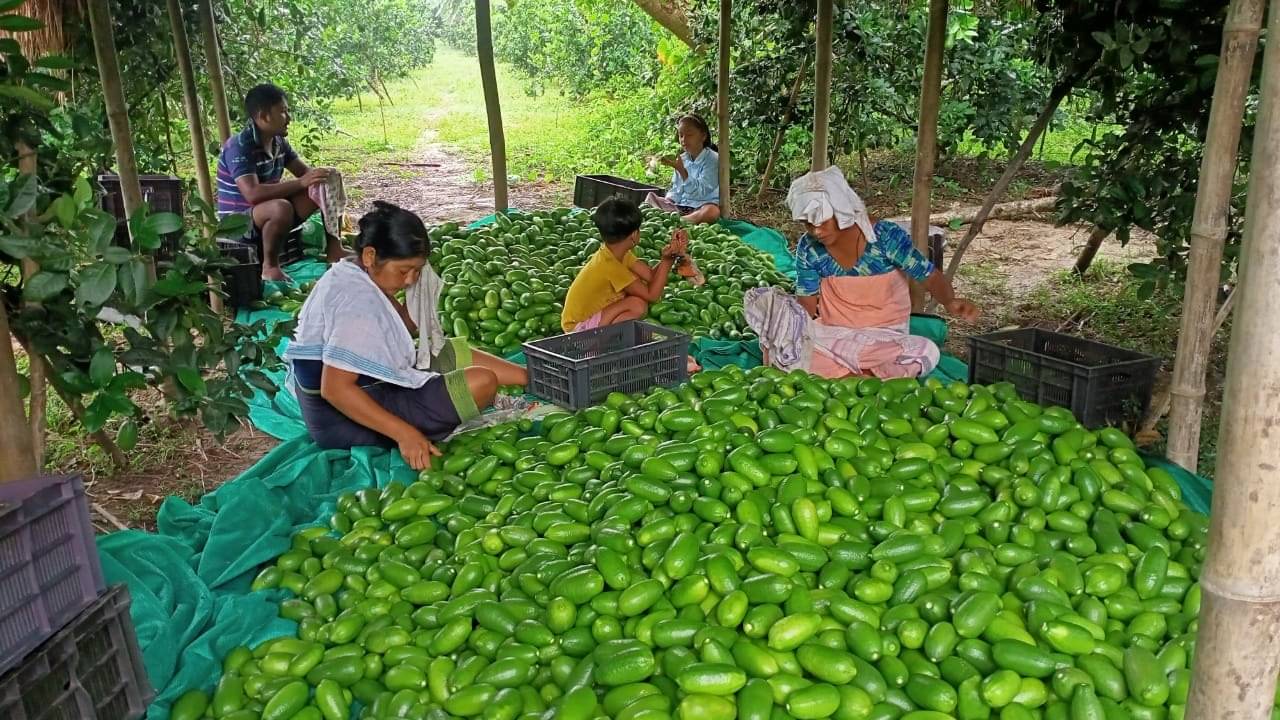How Eco-Friendly Farming Boosted Kaji Nemu Production | Image:
ICAR
Assam is home to many unique citrus varieties, including the prized Assam lemon, locally known as Kaji Nemu. This fruit is valued for its culinary, medicinal, and industrial uses. However, farmers have long struggled with pest infestations, low yields, and over-reliance on chemical pesticides.
Common threats like trunk borers, fruit-sucking moths, aphids, and citrus canker further hampered production. A lack of knowledge about sustainable pest control methods also limited its growth.
A Game-Changing Initiative
To tackle these challenges, the ICAR-National Research Centre for Integrated Pest Management (ICAR-NRIIPM) and Assam Agricultural University’s Citrus Research Station (AAU-CRS) launched an initiative in 2017 under the Tribal Sub-Plan (TSP) Programme of the Government of India. The goal was to introduce eco-friendly Integrated Pest Management (IPM) strategies, boost Kaji Nemu production, and improve the livelihoods of tribal farmers.
Impact on Local Farmers
The programme began in Dirak Maithong village, a flood-prone region with 418 hectares of land. Initially, it covered 34 farming families cultivating 12.7 hectares of Kaji Nemu. In the second phase, 40 more families joined, expanding the area to 19.6 hectares.
Farmers received training in sustainable pest management, high-yielding varieties (HYVs), and traditional farming techniques. “Through on-the-ground training sessions and farmer-scientist interactions, growers were equipped with the latest pest control methods and Indigenous Technical Knowledge (ITK),” the report stated.
Formation of a Farmers’ Cooperative
A major milestone was the creation of the “CRS-Naa Dihing Nemu Tenga Unnayan Samity,” a cooperative society that eliminated middlemen, allowing farmers to negotiate better prices. The cooperative also pushed for a Geographical Indication (GI) tag for Assam lemon, a process currently in progress.
Growth in Production and Income
With improved pest control and farming techniques, Kaji Nemu cultivation expanded from 33 hectares to 107 hectares. Farmers saw their income increase 2-3 times, and productivity rose from 4,421 kg per hectare to 7,614 kg per hectare. The benefit-cost ratio reached 3.4:1, highlighting the initiative’s economic success.
One of the standout achievements was the commercial-scale Assam lemon nursery set up under the cooperative society. This helped farmers earn extra income by selling healthy planting materials. Dirak Maithong is now known as the “IPM village,” a model for sustainable citrus farming.
Kaji Nemu Goes Global
Today, Kaji Nemu is no longer just a local treasure—it has reached international markets in Singapore, Dubai, and the UK. The success of this initiative proves the impact of eco-friendly practices, farmer empowerment, and collective action in transforming a regional crop into a globally recognized product.
Through the joint efforts of ICAR, AAU-CRS, and the dedicated farmers, Kaji Nemu is now a symbol of sustainable agricultural development with a global footprint.

